Baseball fans who were more concerned about MLB umpires “getting it right” than relying on “the human element” to dictate the outcome of games have reason to celebrate after baseball’s first full season of instant replay. In the simplest of terms, the expanded use of instant replay (aka: video review) in it’s rookie season was a monumental success and old-schoolers and traditionalists would be hard pressed to argue otherwise.
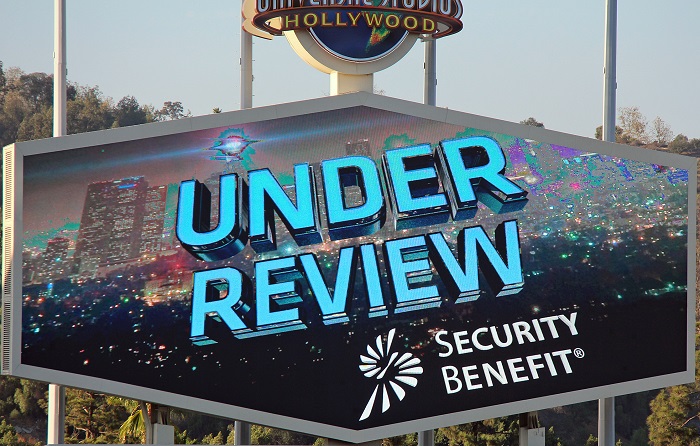
This became a familiar sight for baseball fans across the country in 2014. The good news is that the expanded use of instant replay allowed MLB umpires to “get it right” by overturning nearly half of calls that were challenged. (Photo credit – Ron Cervenka)
Fans interested in researching every one of the 1,276 challenged calls in 2014 (including the postseason) can do so at baseballsavant.com, an outstanding website that breaks down the number of challenges by individual team, the number of challenges upheld versus overturned and the specific type of challenge plays (tags, force outs, home plate collisions, etc.). It really is a great site and kudos to the folks at Baseball Savant for undertaking this very detailed and tedious task.
The most significant (and most surprising) graphic revealed by Baseball Savant is that nearly half (47.65%) of 1,276 challenged calls were overturned after video review – and this does not include the calls that were not overturned because the camera angles viewed by the umpire(s) at MLB headquarters in New York were deemed “inconclusive” – this in spite of the fact that television or in-stadium replays occasionally showed otherwise. But regardless, the intent of instant replay was not to catch umpires screwing up, it was to get the calls right, and to that end MLB hit a grand slam with instant replay.
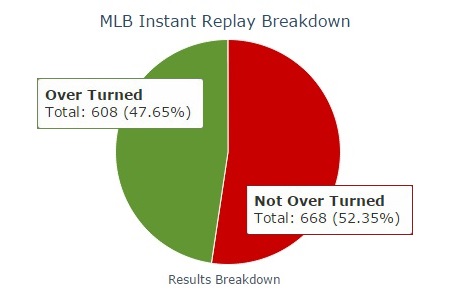
Even though umpires made the wrong call on nearly half of the challenged plays, the use of instant replay helped them “get it right” (almost) 100% of the time.
(Graphics courtesy of baseballsavant.com)
Another interesting graphic from Baseball Savant is the fact that the umpires themselves called for video reviews more than any of the 30 MLB managers did – and by a very wide margin. Now granted, this undoubtedly has more to do with the fact that umpires can review any close or controversial play after the seventh inning with or without a manager’s challenge, but it truly shows that regardless of what we may think of umpires, they too want to get it right and obviously take great pride in their work – Angel Hernandez notwithstanding.
As to be expected during the first attempt at anything, the expanded use of instant replay wasn’t without its flaws. If you recall, the so-called “transfer rule” came under fire almost immediately, as did newly adopted Rule 7.13 – better known as “the Posey Rule” over home plate collisions. But to their credit, Major League Baseball (under the direction and guidance of Executive Vice President of Baseball Operations Joe Torre) addressed these issues and clarified them to the satisfaction of (almost) everyone – although many still believe that the Posey Rule is nonsense and in desperate need of revision.
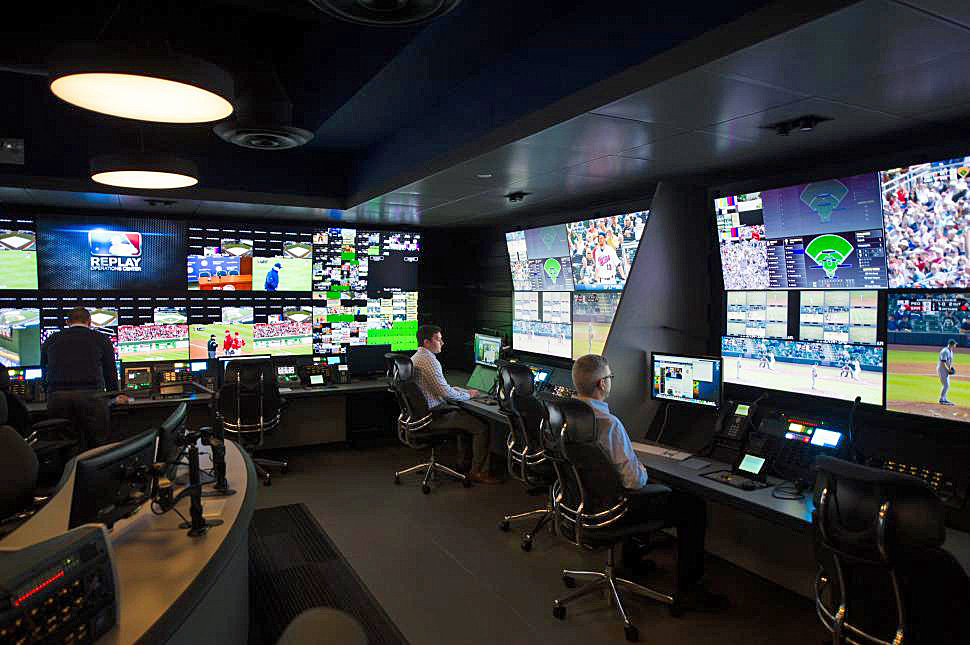
The instant replay room at MLB Advanced Media’s Chelsea offices in New York City.
(Photo credit – Corey Sipkin)
There is one area of the current challenge system that everyone agrees is utterly ridiculous – the obvious delay tactics where managers take a painfully slow walk onto the field on plays that they are considering challenging depending on a ‘thumbs up’ or ‘thumbs down’ from their bench coach while their own video person reviews the play. This is, hands down, the single biggest flaw with the current system. Fortunately, it is also the most likely part of the current system to be revised prior to Opening Day 2015.
“That was really my baby,” Torre told reporters at the annual general managers meetings in Phoenix this past week. “The one thing we talked about challenging, I didn’t want to take away from the manager the fact that he could run out there and argue. I didn’t really plan on them meandering out there and having conversations. You live and learn.
“I think that’s one area we’ll do something different. We’ll eliminate some of that standing around because 10 seconds in our game seems like a lifetime. Hopefully we can make that a little more comfortable.”
Hallelujah!
This alone could speed up the “pace of game” – which seems to be MLB’s reasoning as to why fewer kids are watching (and playing) baseball these days than in the past; but that’s another story for another day. And while everyone casts the blame of these obvious intentional stall tactics on the individual managers, the reality is that they are well within the parameters set forth by MLB under the current challenge system and would be foolish not to take advantage of this flaw in the system.
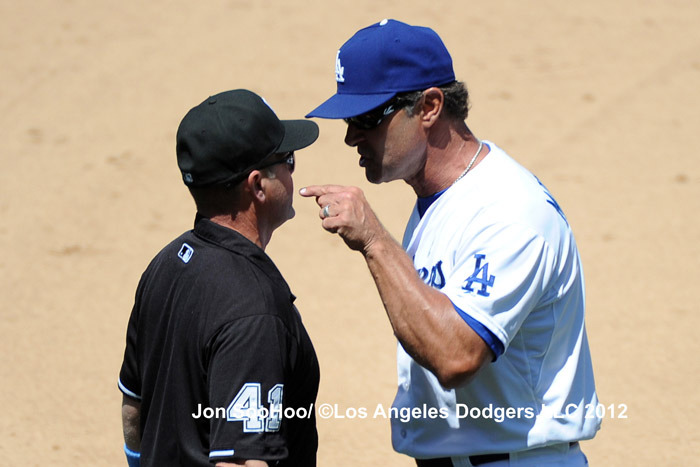
The use of instant replay has significantly reduced the number of on-field arguments – and ejections.
(Photo credit – Jon SooHoo)
Although it is unknown exactly how Joe Torre and the MLB Players Association plan to improve the current ‘thumbs up’/’thumbs down’ dilemma, it is reassuring to know that something will be done about it before the first pitch of the 2015 season on Sunday night, April 5, 2015 at Chicago’s newly renovated Wrigley Field.
Is it Opening Day yet?




 November 15th, 2014 at 6:00 am
November 15th, 2014 at 6:00 am  by Ron Cervenka
by Ron Cervenka 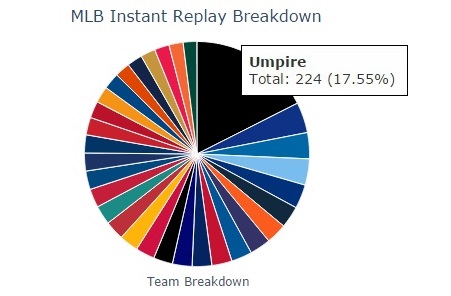
 Posted in
Posted in 

It’s simple folks. The manager walks out, discusses with the umpire and cannot make a challenge. Or, the manager walks out and issues a challenge. None of the stalling. At worst it’s a 50-50 gamble.
I agree Ron 100%. I don’t understand what some fans are saying about “challenges by the managers” This is not a competition between managers, it’s ONLY about getting the calls right. Maybe they can look for a quicker way to do it but it doesn’t change the reason for it.
I don’t want a NFL type challenge system where the manager could possibly be wrong. I just want the correct call to be made, plain and simple.
I’m also a strong believer in having electronic strike zones one day. As you mentioned Ron, umpires had calls on the field wrong almost half the time. I’m willing to bet balls and strike calls were just as bad. A human umpire calling balls and strikes inherently makes the game subjective when sports should be objective and fair.
Excellent point, Roy – it’s not about the manager being right or wrong or even about delaying the game, it’s about getting the call right.
I imagine that someday balls and strikes will be called electronically, but it won’t happen in my lifetime. It’s going to be difficult to get that one past the MLB, MLBPA and of course the umpires’ union.
That being said and as Harold noted, there are as many games decided by blown ball and strike calls as there are blown calls on there are on the field. Unfortunately, this ratio will go up exponentially with instant replay reducing (and perhaps some day eliminating) the number of blown calls on the field.
I was thinking that the “time clocks” whatever they call them being used now in the AFL that will eventually make it to the MLB to reduce the game times, will off set the time consumed with “instant replay”.
I will be very surprised if the pitch clock makes it to the MLB anytime soon. I do not see the MLBPA agreeing to it.